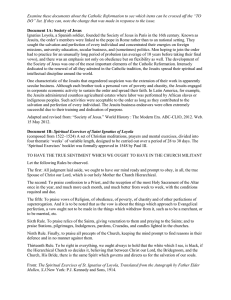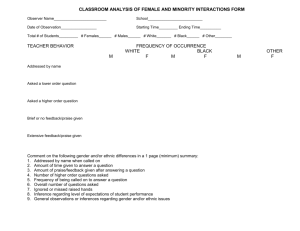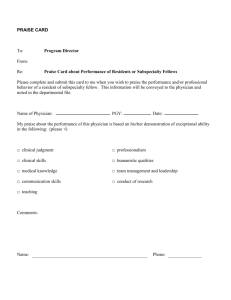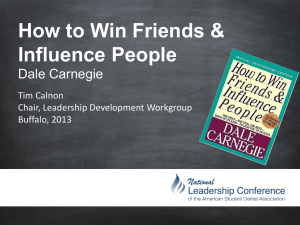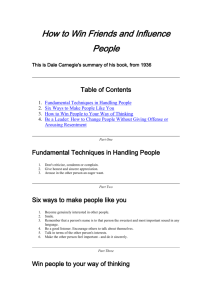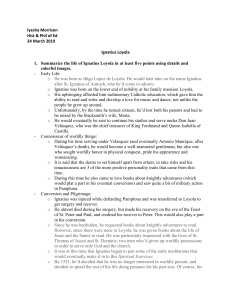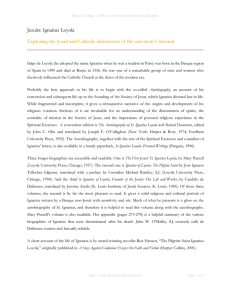DOCUMENT 14-6 IGNATIUS OF LOYOLA Rules for Right Thinking
advertisement
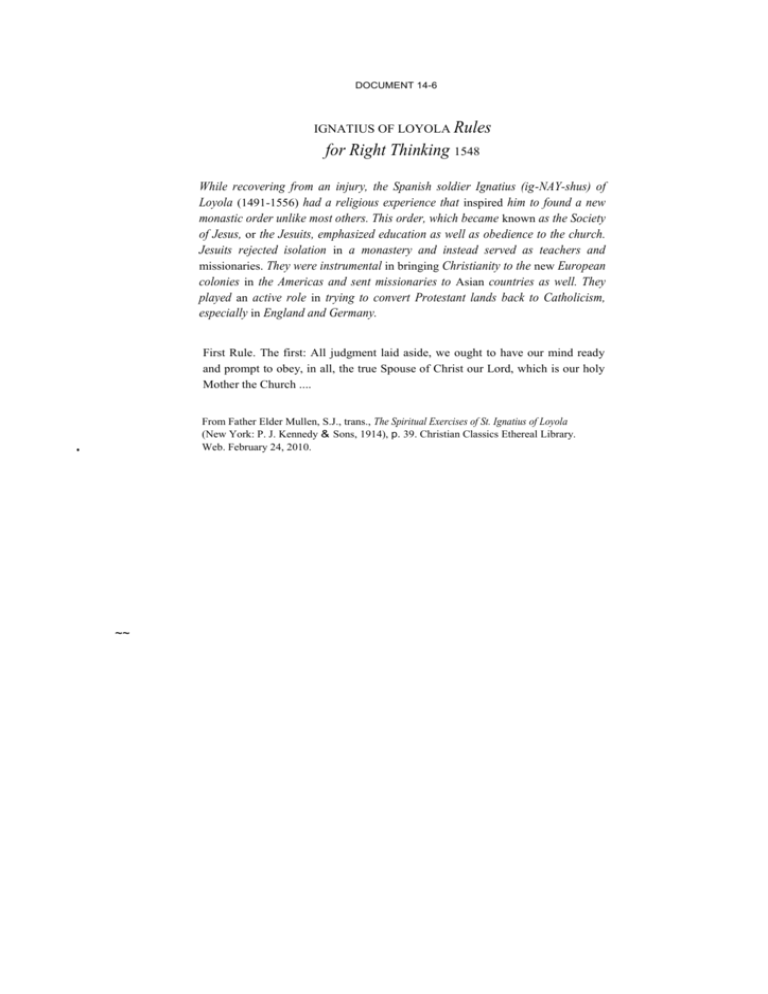
DOCUMENT 14-6 IGNATIUS OF LOYOLA Rules for Right Thinking 1548 While recovering from an injury, the Spanish soldier Ignatius (ig-NAY-shus) of Loyola (1491-1556) had a religious experience that inspired him to found a new monastic order unlike most others. This order, which became known as the Society of Jesus, or the Jesuits, emphasized education as well as obedience to the church. Jesuits rejected isolation in a monastery and instead served as teachers and missionaries. They were instrumental in bringing Christianity to the new European colonies in the Americas and sent missionaries to Asian countries as well. They played an active role in trying to convert Protestant lands back to Catholicism, especially in England and Germany. First Rule. The first: All judgment laid aside, we ought to have our mind ready and prompt to obey, in all, the true Spouse of Christ our Lord, which is our holy Mother the Church .... From Father Elder Mullen, S.J., trans., The Spiritual Exercises of St. Ignatius of Loyola (New York: P. J. Kennedy & Sons, 1914), p. 39. Christian Classics Ethereal Library. Web. February 24, 2010. . ~~ 2. 1. RULES FOR RIGHT THINKING 231 Fifth Rule. The fifth: To praise vows of Religion, of obedience, of poverty, of chastity, and of other perfections .... Sixth Rule. To praise relics of the Saints, giving veneration to them and praying to the Saints; and to praise ... pilgrimages, indulgences, ... and candles lighted in the churches. Eighth Rule. To praise the ornaments and the buildings of churches; likewise images, and to venerate them according to what they represent. Ninth Rule. Finally, to praise all precepts of the Church, keeping the mind prompt to find reasons in their defense and in no manner against them. Tenth Rule. We ought to be more prompt to find good and praise as well the ... recommendations as the ways of our Superiors. Because, although some are not or have not been [upright], to speak against them, whether preaching in public or discoursing before the common people, would rather give rise to fault-finding and scandal than profit; and so the people would be incensed against their Superiors, whether temporal or spiritual. So that, as it does harm to speak evil to the common people of Superiors in their absence, so it can make profit to speak of the evil ways to the persons themselves who can remedy them. Twelfth Rule. VVe ought to be on our guard in making comparison of those of us who are alive to the blessed passed away, because error is committed not a little in this; that is to say, in saying, this one knows more than St. Augustine; he is another, or greater than, St. Francis; he is another St. Paul in goodness, holiness, etc. Thirteenth Rule. To be right in everything, we ought always to hold that the white which I see, is black, if the Church so decides it, believing that between Christ our Lord, ... and the Church, ... there is the same Spirit which governs and directs us for the salvation of our souls. Because by the same Spirit and our Lord Who gave the ten Commandments, our holy r-lother the Church is directed and governed. Fourteenth Rule. Although there is much truth in the assertion that no one can save himself without being predestined and without having faith and grace; we must be very cautious in the manner of speaking and communicating with others about all these things. 3. 232 REFORMATIONS AND RELIGIOUS WARS 1500-1600 Fifteenth Rule. We ought not, by way of custom, to speak much of predes- hnation; but if in some \Fa,F and at some times one speaks, let him so speak thai the commrYn people ma.r not come into an.veHm; as sometimes hap pens, saying: Whether I have to be saved or condemned is already determined, and no other thing can now be, through my doing well or ill; and with this, growing lazy, they become negligent in the works which lead to the salvation and the spiritual. Sixteenth Rule. In the same way, we must be on our guard that by talking much and with much insistence of faith, without any distinction and explanation, occasion be not given to the people to be lazy and slothful in works, whether before faith is formed in charity or after. READING AND DISCUSSION QUESTIONS 4. What rules should the Jesuits follow in order to be faithful to the church? 5. What should a Jesuit do if he disagrees with the church? 6. What things should not be spoken of to the people? Why? COMPARATIVE QUESTIONS 1. What impact did Luther's ideas have on others? Consider how the authors of other documents have added to Protestant ideas beyond the "Ninety-five Theses." 2. What impact did the Reformation have on women? Would Zell or de Jussie say it was positive or negative? Why? 3. Which thinker, Luther or Servetus, posed the more serious threat to traditional Christianity? Why? What would Ignatius say to someone like Servetus with similar disagreements on Christianity? 4. Compare and contrast the image of the pope in the woodcut (c. 1519) with what Luther said of him in his "Ninety-five Theses" (1517). What seems to have changed in the two years separating the documents?
